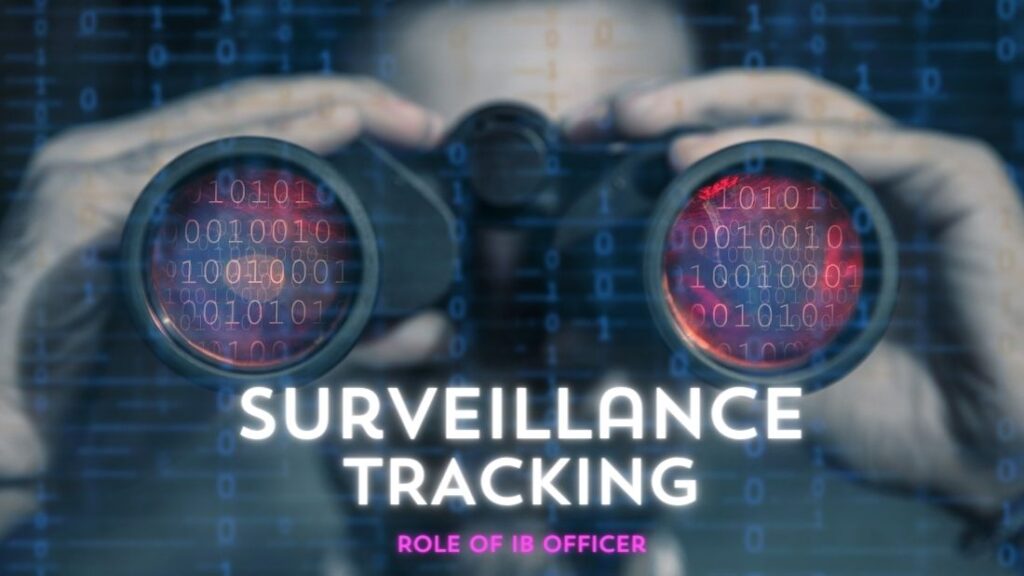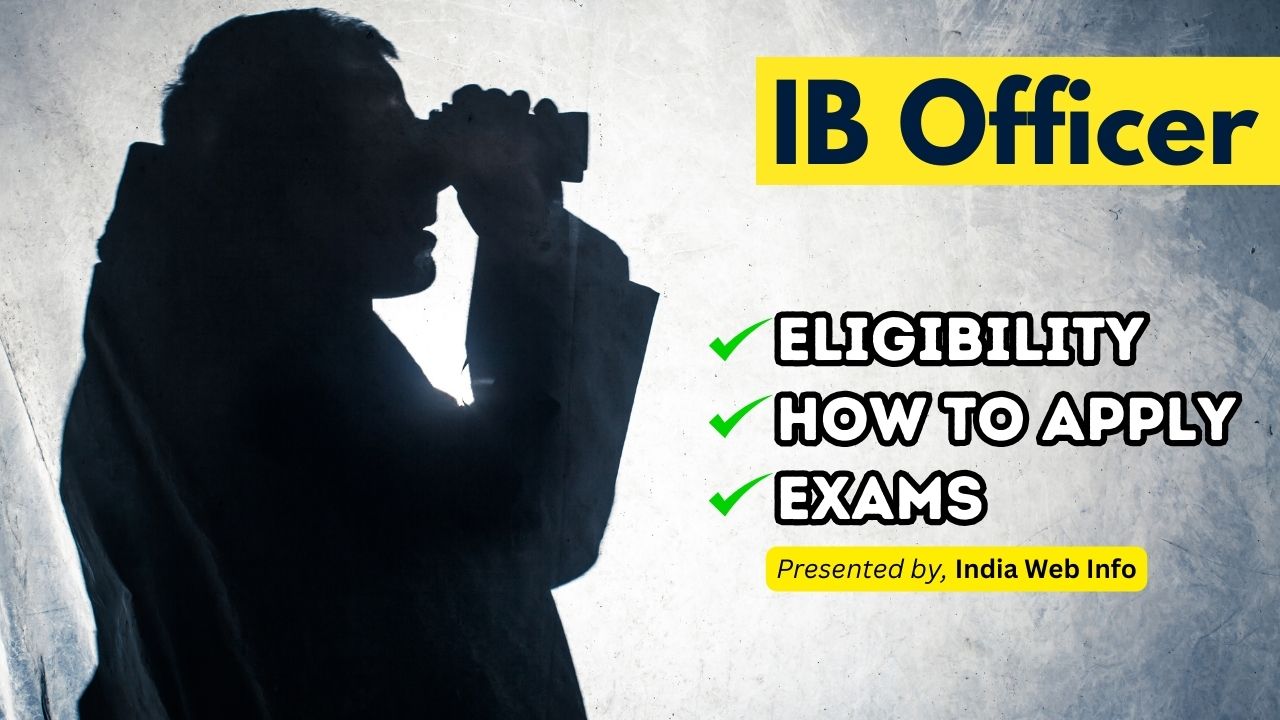Table of Contents
What is IB?
IB stands for ‘Intelligence Bureau’. It is India’s top most Intelligence Service for Internal security and counter-intelligence. It comes under the Ministry of Home Affairs. The main purpose of IB is to safeguard India from Domestic/Internal security threats, Terror threats, etc. and providing internal confidential information to help military operations and regional police force to maintain peace and harmony throughout the country.
IB is different than RAW (Research and Analysis Wing) which mainly focuses on international security and threats, i.e. foreign intelligence (International Level). While IB (Intelligence Bureau) purely focuses on Domestic/Internal Intelligence (National Level). In 1887, the very first Intelligence service of India was established by the name CSB (Central Special Branch). Later in 1968, it was divided in to 2 Wings, RAW for International Intelligence services and IB for National intelligence services.
Intelligence bureau operates under the leadership of an ‘A’ category IPS Officer, who is also the Chief of the Organization.
Role of an Intelligence Bureau (IB) Officer
To know how to become Intelligence bureau Officer, first lets see what are the Roles of an IB officer. The Intelligence Officers plays highly important role in National Security services and are having wide range of responsibilities. The major role played by Intelligence Bureau Officers are as follows:

- They collect, track and analyze every minute information and decode confidential communications to safeguard national security.
- They conduct surveillance operations and support military and police operations by providing counter-intelligence.
- Identify potential risks and threats to national security.
- Detect and counter anti-national activities.
- They provide recommendations for preventive and responsive measures to eliminate security risks.
- They provide their inputs to government agencies in formulating new policies.
- They create national-security strategies.
- They work in collaboration with Law enforcement and security agencies.
- They provide real-time intelligence at time of emergencies for better decision making.
- They also carry out under cover operations to burst large-scale crimes, rackets and scams.
- They update themselves and protect any regional or communal unrest due to any geo-political developments.
How to Join IB (Intelligence Bureau)?
1. Educational Qualification Required
- Some of the positions like IB Junior Intelligence Officer require graduation in any field or engineering degree in related field according to exam and posts.
- There are also other exams to Join IB after 10th/12th. To know How to Join IB after 12th you can check below competitive exams.
2. Eligibility Criteria & Preferences
- Must be a Citizen of India
- Age between 21 to 30 Years, may be higher age limit for specific posts.
- Good physical health and fitness. Clear Medical Examination and Fitness tests as per the standards.
- Stay updated on National and International affairs.
- Maintain a clean record without any criminal/offensive charges.
- Multiple skills and languages will be an added advantage
- Interpersonal skills and leadership qualities will help in clearing Interview
3. Competitive Exams
(i) IB Assistant Central Intelligence Officer (ACIO) Exam:
To Join Intelligence Bureau after graduation you need to have a bachelor or graduation degree as mentioned below, or specific degree for the post that you are applying. It is conducted by the Ministry of Home Affairs. Candidates are assessed for their analytical and intelligence skills.
| IB ACIO – Eligibility | Exam Pattern | Syllabus | Pay Scale | |
| Eligibility | – Age Limit: 18-27 years – Educational Qualification: Valid score in GATE CS or GATE EC with B.E or B.Tech in Electronics or Electronics & Tele-communication or M.Sc with Electronics or Physics with Electronics or Electronics & Communication or Computer Science – Experience: Not required |
| Exam Pattern | Tier I Objective type MCQs – 100 marks Tier II Descriptive type paper – 50 marks Tier III – Personal Interview |
| Syllabus | – General Awareness – Quantitative Aptitude – Analytical Ability – English Language – General Studies – Essay Writing – Comprehension and Precis Writing |
| Salary | Rs. 44,900 – Rs. 1,42,400 (pay-matrix level 7) |
| IB ACIO – Exam Stage | Type of Exam | Paper Pattern | Time | Marks |
|---|---|---|---|---|
| Tier-I | Objective type MCQs | Current Affairs General Studies Numerical Aptitude Reasoning/Logical Aptitude English | 1 hour | 100 |
| Tier-II | Descriptive type paper | Essay (30 marks) & English Comprehension & Précis Writing (20 marks) | 1 hour | 50 |
| Tier-III | Interview | 100 |
(ii) Combined Graduate Level (CGL) Examination:
| SSC CGL (Combined Graduate Level) – Eligibility | Exam Pattern | Syllabus | Pay Scale | |
| Eligibility | – Age Limit: 18-32 years – Educational Qualification: Must have completed Bachelor Degree/Graduation in any stream from any recognized University in India – Experience: Not required |
| Exam Pattern | Tier I – Objective type MCQs – 200 marks Tier II – Paper 1 – 450 marks & Paper 2 & 3 – 200 marks each. |
| Syllabus | – General Intelligence and Reasoning – General Awareness – Numerical Aptitude – General English |
| Salary | Rs. 29,200 – Rs. 92,300 (pay-matrix level 5) |
(iii) UPSC Civil Services Examination (CSE):
Union Public Service Commission UPSC conducts various examinations and Civil services Examination (CSE) is one among them. The exam pattern for Civil Services Examination (CSE) consists of 2 stages and an Interview:
- Stage 1 – Preliminary Exam
- Stage 2 – MAINS Exam & Interview
Stage 1 – Preliminary Exam
– Consists of 2 papers (General studies – Paper I & CSAT General studies – Paper II. Both papers are objective in nature
– Candidates who clear preliminary exam will be qualified to appear for MIANS exam.
– Both Papers are of 200 Marks. Paper 1 there will be 100 Questions and in paper 2, there will be 80 Questions.
– Has got Negative marking scheme. 1/3rd mark will be deducted for every wrong answer.
| Paper Name | Time Duration | No. of Questions | Total Marks | Nature of Paper |
| General studies (Paper I) | 2 hours | 100 | 200 | Marks considered for Preliminary Exam Merit |
| General studies (Paper II)(CSAT) | 2 hours | 80 | 200 | Qualifying in nature |
Stage 2 – MAINS Exam
– Candidates who qualify for MAINS exam have to give 9 papers out of which 2 are qualifying. The rest of the 7 papers and Interview, are only considered for Merit List. – All these 9 papers are descriptive in nature.
– It is mandatory to secure 25% minimum in each paper, to qualify for Interview.
| Paper Name | Time Duration | Total Marks | Nature of Paper |
| Paper A – Compulsory Indian Language Paper | 3 hours | 300 | Qualifying in nature |
| Paper B – English Language Paper | 3 hours | 300 | |
| Paper I – Essay | 3 hours | 250 | Considered for Merit |
| Paper-II – General Studies I | 3 hours | 250 | |
| Paper III – General Studies II | 3 hours | 250 | |
| Paper IV – General Studies III | 3 hours | 250 | |
| Paper V – General Studies IV | 3 hours | 250 | |
| Paper VI – Optional Paper I | 3 hours | 250 | |
| Paper VII – Optional Paper-II | 3 hours | 250 | |
| Total Marks | 1750 | ||
| Interview/ Personality Test | 275 | ||
| Grand Total Marks | 2025 |
(iv) IB Security Assistant Exam:
| IB Security Assistant – Eligibility | Exam Pattern | Syllabus | Pay Scale | |
| Eligibility | – Age Limit: Max 27 years (as on 10th February 2023) – Educational Qualification: 10th pass from any recognized Board – Desirable Experience: Field experience in Intelligence work |
| Exam Pattern | Tier I exam (objective test) – 100 marks Tier II exam (descriptive test) – 50 marks Tier III Interview: 50 marks. |
| Syllabus | General Awareness & General Studies Reasoning Quantitative Aptitude General English |
| Salary | Rs. 21,700 – Rs. 69,100 (pay-matrix level 3) |
(v) IB MTS Exam:
| IB MTS – Eligibility | Exam Pattern | Syllabus | Pay Scale | |
| Eligibility | – Age Limit: 18-25 years – Educational Qualification: 10th pass. – Experience: No experience required |
| Exam Pattern | Tier I (Objective-type Written Exam) – 100 marks Tier II (Descriptive-type) – 40 marks |
| Syllabus | – General Awareness – Quantitative Aptitude – Numerical/Analytical/Logical Ability & Reasoning – English Language & Comprehension – General Studies |
| Salary | Rs 18,000 – Rs 56,900 (pay-matrix level 1) |
(vi) Combined Defense Services (CDS) Examination:
- This is also conducted by UPSC to recruit candidates for the Indian Military Academy, Naval Academy, Air Force Academy, Officer’s Training Academy, etc. Through Army or Defense Services you can join Intelligence bureau. To check the Posts and exam dates check our Jobs Section, on India Web Info portal.
(vii) Central Armed Police Forces (CAPF) Examination:
This is also conducted by UPSC to recruit candidates in Armed Forces. Through armed forces also you can join Intelligence bureau. To check the Posts and exam dates check our Jobs Section, on India Web Info portal.
(viii) National Defense Academy (NDA) Examination:
This is also conducted by UPSC to recruit candidates in Military/Army, Indian Navy, Airforce, etc. Through Army or Defense Services you can join Intelligence bureau. To check the Posts and exam dates check our Jobs Section, on India Web Info portal.
Steps to Become an Intelligence Bureau (IB) Officer
Step #1: Pass your Graduation or 12th, if you want to Join IB after 12th
Step #2: Possess some Professional Qualifications like Computer Applications, Cyber Security, etc.
Step #3: Make yourself eligible for the IB Exam in terms of: educational qualification, physical fitness requirement, age limit, etc.
Step #4: Register or Apply for the IB Exam
Step #5: Prepare and clear all the stages of IB Exam.
Step #6: If you got selected, you will be given Basic Training which includes classroom lectures as well as field training.
Step #7: After completion of training, you will be sent for on-the-job training in any department in IB. this training can last for 6 to 12 months depending on department and your role.
Thus, joining Intelligence Bureau requires a combination of Qualification and Hard preparation to clear competitive exams like ACIO, UPSC/Civil Services and CGL. Stay updated with current affairs and global news and policies. Learn more skills and languages. By becoming IB officer, you can contribute to National security and Peace.
Building a successful career by becoming an Intelligence Bureau Officer demands not only academic qualification but also a set of interpersonal skills, psychological stability and physical fitness. There are other factors which should be taken care of, in order to get success in this field.

